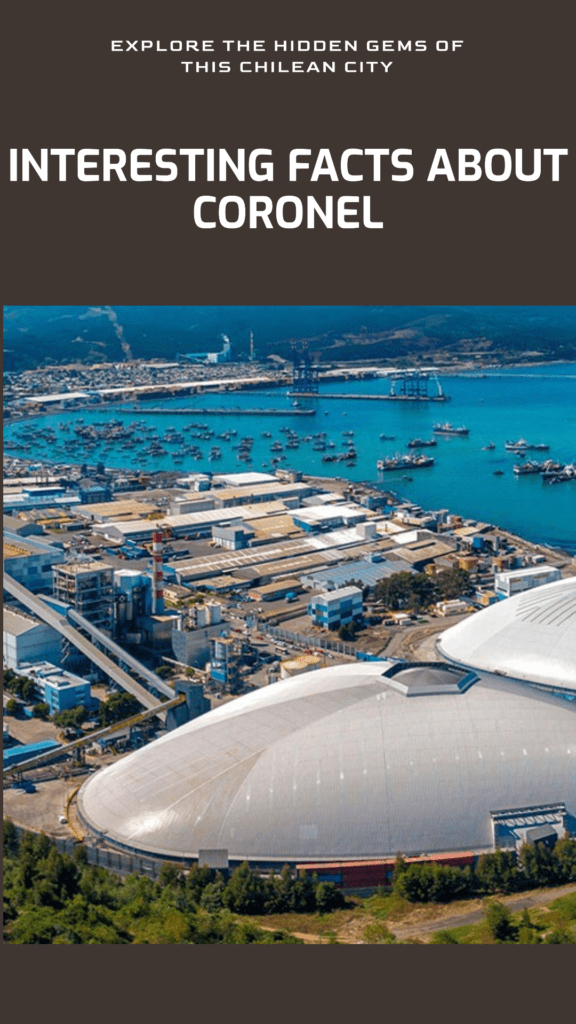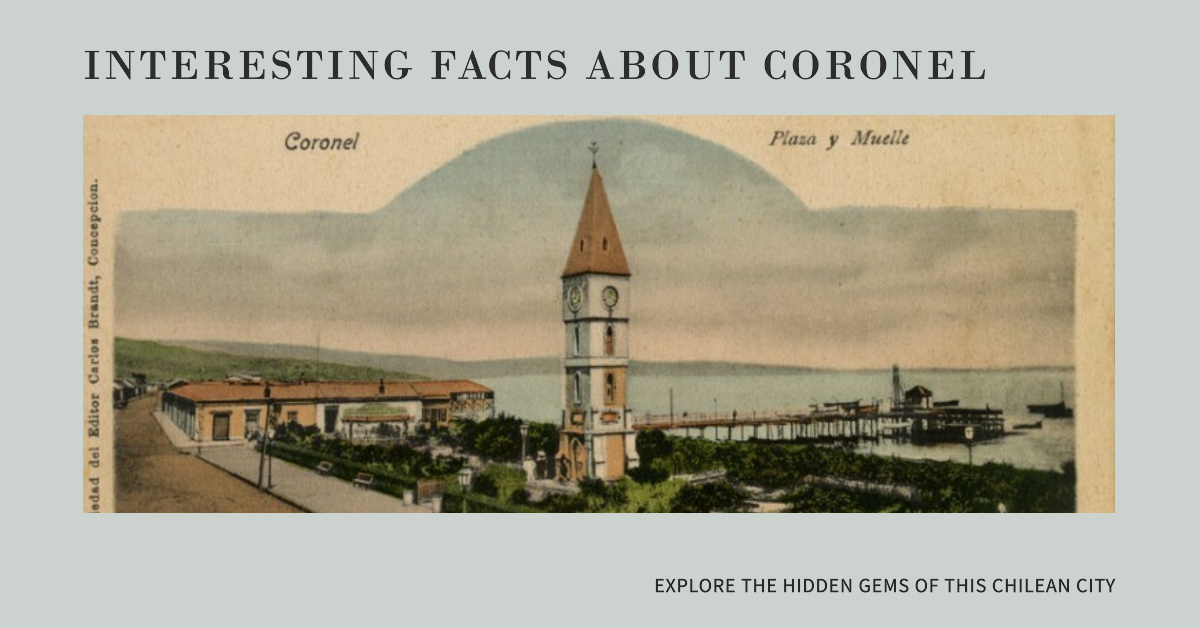Facts About Coronel
- Coronel is a Chilean city and commune, in the Concepción Province of the eighth region of Biobío.
- During World War I, A naval Battle of Coronel between ships of the United Kingdom and Germany was fought on 1 November 1914 off the coast of Coronel.
- The total area of Coronel commune is 279.4 km2 (108 sq mi).
- Coronel’s culinary scene is influenced by its coastal location, with fresh seafood being a prominent feature in local markets. Traditional Chilean dishes like ceviche and empanadas are likely to be part of the local cuisine.
- Coronel served as the seat of the Lautaro Department, subsequently renamed the Coronel Department.
- Santa María Island forms part of Coronel, represented there by a municipal delegate.
- The Average temperature of Coronel in summer is 17 °C (63 °F) and 8 °C (46 °F) in winter.
- The city features a blend of architectural styles, ranging from colonial-era buildings to more contemporary structures. The Iglesia San Pedro Apóstol is a notable historic site
- The estimated population of Coronel is 109,709, as of 2017 and The population reflects a mix of cultures, including influences from the indigenous Mapuche people, European heritage, and modern Chilean culture.
- Historically, Coronel has been associated with the coal mining industry, playing a significant role in the extraction and transportation of coal.


